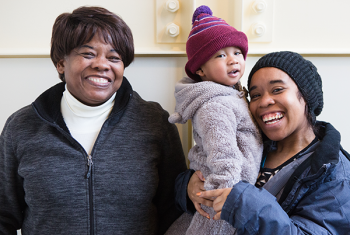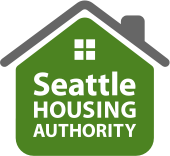
By Lisa Richter, Neighborcare Health
Every child deserves to have a healthy start in life. The first 1,000 days of your child’s life are very important, and health and nutrition during this time can impact long-term health and wellness.
During the first 1,000 days, your child’s brain, body and behaviors are changing quickly. These changes are like building blocks that work together to prepare your child to learn to walk, talk, read, reason and think. As these building blocks develop in early childhood, they can positively impact your child’s future health, ability to connect with others and do well in school.
Regular health check-ups after the birth of your baby
Neighborcare Health recommends that your child have a wellness visit, also called a well-child checkup, at 2, 4, 6, 9, 12, 15, 18 and 24 months old. These visits are a good time for you to ask questions or talk about concerns you may have about your child’s behavior, emotional health, growth and more.
During a well-child visit, a medical provider can:
- Monitor how your child is growing
- Give vaccinations children need
- Catch any health issues before they become a problem
- Help ensure your child’s good health
After 24 months, or two years, we recommend well-child checkups once a year until your child is 18 years old.
Nutrition is key
During pregnancy. A healthy baby starts with a healthy mother. Eating healthy foods and taking vitamins with folic acid, omega-3 fatty acids and vitamin D during pregnancy helps your baby gets the important nutrients they need before birth. If you are pregnant, help your baby grow healthy by eating a diet filled with:
- Protein (lean meat, chicken, some fish, eggs, beans, peas)
- Whole grains (oats, quinoa, brown rice, barley)
- Fruits and vegetables
- Foods high in iron (leafy greens, meat) and vitamin C (orange juice, tomatoes)
Infancy. After your baby is born, Neighborcare Health recommends breastfeeding your infant for the first 6 months. Breastfeeding supports the long-term health of you and your baby, and breast milk has all the nutrients your baby needs. Breastfeeding also helps your baby maintain a healthy weight and develop good eating habits. Breast milk also contains antibodies that help protect infants against many illnesses, infections and conditions, now and later in life.
- Did you know? Breastfeeding can also help you recover from delivering your baby, and lowers the risk of breast and ovarian cancer.
Early childhood. Healthy food is important to the growth of your child. According to the Centers for Disease Control and Prevention, during early childhood, the brain and body of young children need fruits, vegetables, whole grains, dairy and meat to continue to grow.
- Did you know? Poor nutrition can cause growth to slow down, or “stunting”. Stunting can damage the brain and body, which increases the risk for health and behavior issues.
Nutrition for women and children
When children get a strong start, we all benefit. WIC (Women, Infants and Children) is a program that helps pregnant women, new mothers and young children eat well, learn about nutrition and stay healthy. If you meet the income guidelines, WIC’s free services include:
- Food assistance
- Tips for healthy eating
- Breastfeeding support
- Referrals to other health and family services
- And more
WIC services are available at all Public Health centers and at many health clinics in King County. Find a location near you online or call the Family Health Hotline at 1-800-322-2588.
This article was provided by Neighborcare Health, an SHA partner. Neighborcare Health is the largest provider of primary medical and dental services for low-income and uninsured families and individuals in Seattle. They serve more than 75,000 patients each year at nearly 30 medical, dental and school-based clinics. Find a clinic in your neighborhood. All are welcome at Neighborcare Health.
